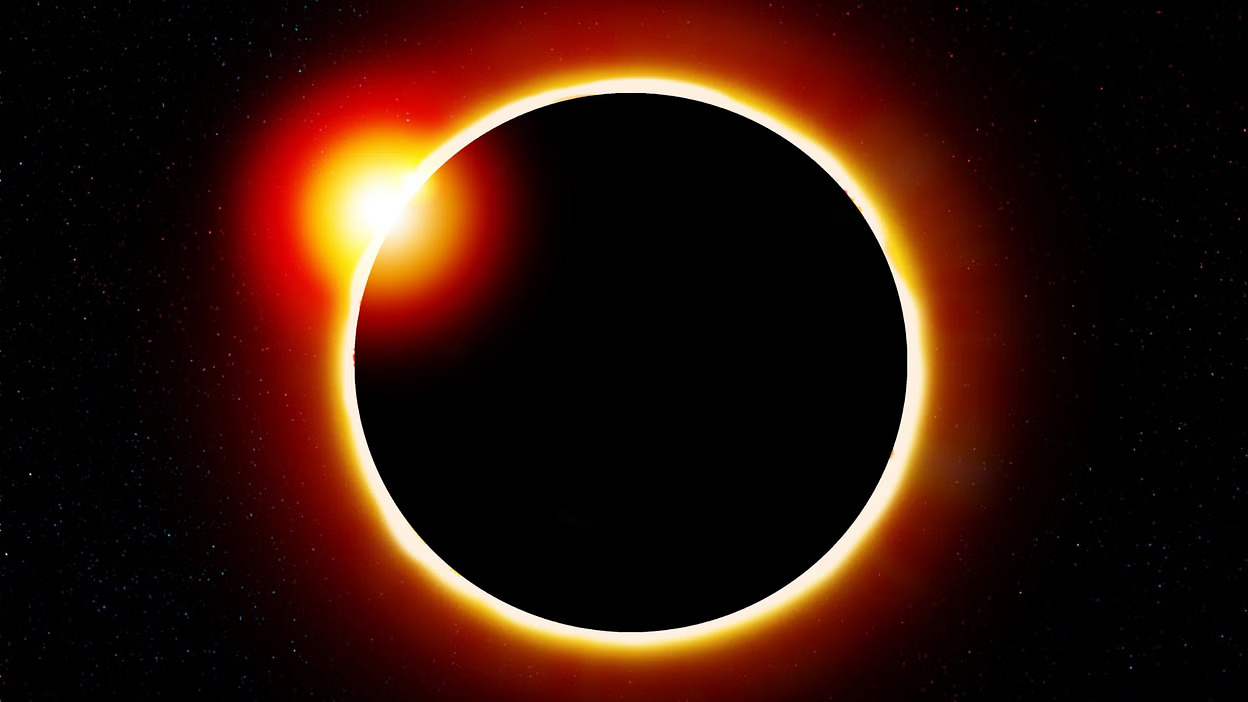Now Reading: No Solar Eclipse 2025 on August 2 – Clear the Confusion!
-
01
No Solar Eclipse 2025 on August 2 – Clear the Confusion!
No Solar Eclipse 2025 on August 2 – Clear the Confusion!

New Delhi, August 1, 2025: A wave of misinformation has recently swept across social media platforms, claiming that a significant solar eclipse, sometimes even referred to as the “longest in a century,” will darken skies on August 2, 2025. This has caused considerable confusion and unwarranted concern among the public. However, astronomical experts and Vedic astrologers alike have unequivocally debunked these viral claims, confirming that no such celestial event will occur on this date.
The truth is simple: August 2, 2025, will not witness a solar eclipse. Reputable global agencies, including NASA, have affirmed that the claims circulating online are entirely false. Experts suggest the confusion likely stems from a major total solar eclipse scheduled for August 2, 2027, an event anticipated to be one of the longest in the 21st century, lasting over six minutes in some locations. This future astronomical spectacle appears to have been mistakenly conflated with the current year.
Also Read: Indian Markets Dip Amidst US Tariff Fears, Global Uncertainty
According to precise astronomical data, only two solar eclipses are scheduled for 2025. The first, a partial solar eclipse, occurred on March 29, 2025. The second and final solar eclipse of the year will take place on September 21, 2025. It will also be a partial solar eclipse, primarily visible from regions in the Southern Hemisphere, including parts of Eastern Australia, New Zealand, Antarctica, and the South Pacific Ocean. Crucially, neither of these 2025 eclipses will be visible from India.
Vedic astrologers have also weighed in, urging the public to disregard the circulating rumors. They emphasize that traditional Hindu almanacs (Panchangs) do not register any solar eclipse on August 2, 2025. As astrologer Vinay Bajrangi clarified, for a Surya Grahan (solar eclipse) to occur according to Vedic principles, specific planetary alignments are essential, including the close conjunction of the Sun, Moon, and either Rahu or Ketu (the lunar nodes). On August 2, 2025, these planetary conditions simply do not exist. Therefore, no “grahan yoga” is present on that day, and there is no astrological basis for any associated rituals or precautions.
The widespread nature of this misinformation highlights the challenges of distinguishing accurate information from viral hoaxes in the digital age. Many individuals expressed worry about potential health impacts, spiritual implications, or the need to alter daily routines based on these unfounded claims. Both scientific institutions and spiritual authorities are actively working to dispel these myths and reassure the public.
For those interested in legitimate celestial events, mark your calendars for August 2, 2027, for the next major total solar eclipse. This remarkable event will trace a path of totality across parts of Southern Europe, North Africa, and the Middle East, including countries like Spain, Egypt, Morocco, Algeria, Saudi Arabia, and Somalia. While India will not experience the total phase, certain parts of the country may witness a partial eclipse during the late afternoon hours on that date.
In the interim, the public should rely on verified sources like national space agencies, reputable astronomical observatories, and established astrological authorities for accurate information regarding celestial phenomena. Do not fall victim to baseless social media forwards that generate unnecessary panic and confusion. August 2, 2025, will simply be another day, with no solar eclipse in sight.







